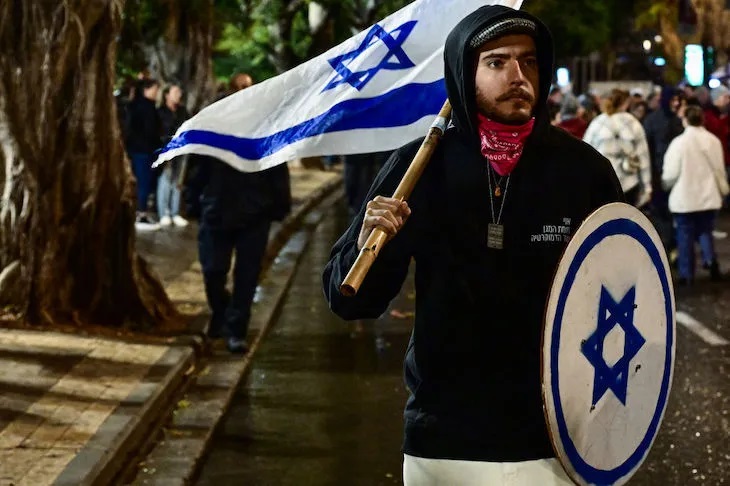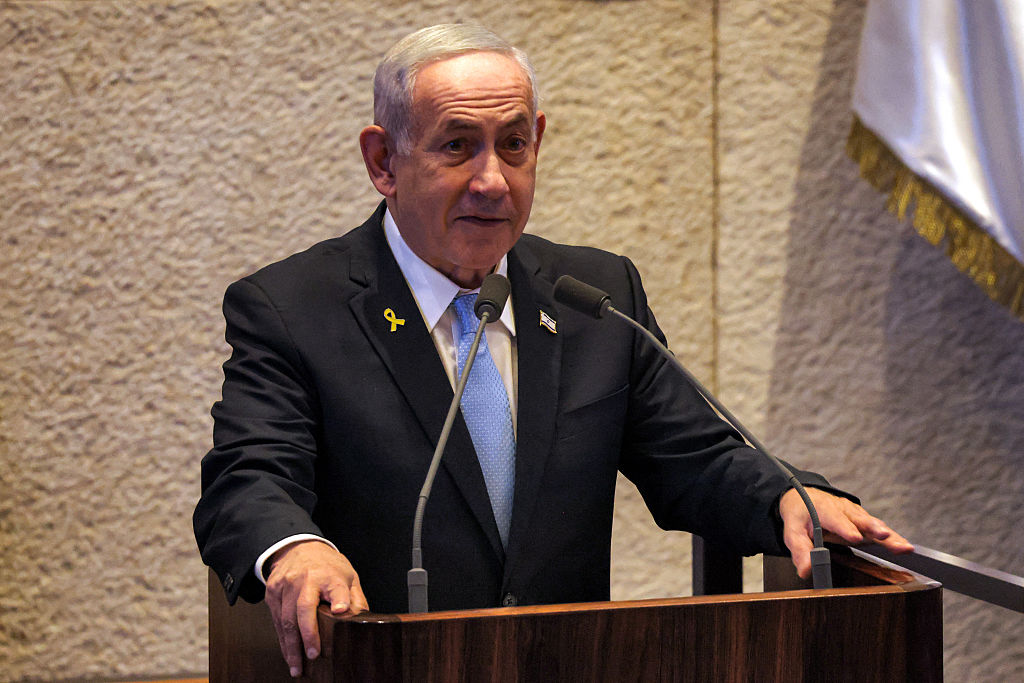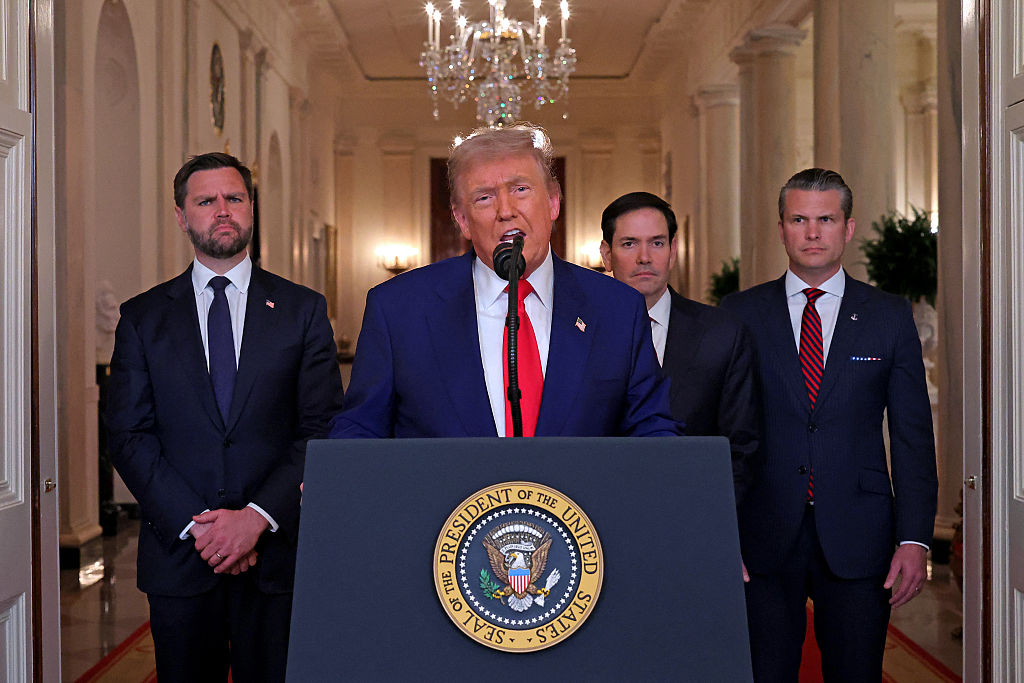I have visited Israel three times in the past year. The first trip was in the spring, just as the anti-government protests — triggered by Benjamin Netanyahu’s attempts to control the supreme court — were beginning. The day before we traveled , protestors forced Tel Aviv’s Ben-Gurion airport to close, and a general strike was announced. Every Saturday night, out went the protestors — mostly liberal and secular, but not entirely, so widespread is frustration with the government. “You could not be seen sitting and drinking wine on a Saturday night,” Moran Alon, the owner of the Nilus bar in Tel Aviv told me. “People would wonder: why aren’t you at the protest? What’s wrong with you?”
My second trip, in early December, took place in a different Israel, one in which uproar about the status of their supreme court looked like lethal, tragic foolery. Israelis were still in the first stages of shock and mourning, two months since Hamas rampaged into southern Israel. The streets were quiet, even if some restaurants and bars had reopened. Schools, which had been shut entirely, were operationally half the day. Protests were out of the question.
But on my third visit last week, the protests were back. They were anti-government, but they were not concerned with the judicial overhaul that is now on ice. The protestors were raging at the government for its mismanagement of the threats that led to Israel being in this horrendous situation, with 132 hostages still in Gaza (of which many are presumed dead). And there is rage on behalf of the hostages and the question of why they are still in Gaza: has the government tried absolutely everything to get them back, or is there perhaps a lack of desperation to do so, as some suspect? Even former Netanyahu die-hards, including several taxi drivers I spoke to, now want him gone.
But there is one thing most people agree on, from hostage families to those with children in the army: the war must go on until Hamas is completely destroyed. Anything else means that “those monsters” as I heard one young man with piercings refer to them, will do it again. Israel is untenable while they are in control. Many are also beginning to fear Israel will need to go into Lebanon to ensure the withdrawal of the rocket threat from Iran-backed Hezbollah, so that the 70,000 people evacuated from the north can return home.
The protesters looked similar to those I’d seen and spoken to in March and April; many of them apparently granola-munching, Haaretz-reading (Israel’s version of the The New York Times) types, plus assorted young people, all waving placards, with many wearing jaunty scarves and cool t-shirts. Yet their politics — indeed their whole worldview — has been shattered. Older and younger: across the board Israel has become a country with a precise — renewed — sense of the urgency of war: not military action alone, unbolstered by regional deal-making and international support, but unstinting armed combat nonetheless against a clear and intolerable enemy. Attacking a music festival was another efficient way to turn a generation of youngsters into hawks.
The war must go on until Hamas is completely destroyed
Anyone sane who has seen or read of the destruction and murder at the kibbutzim and at the Nova music festival — as well as in the southern town of Sderot — would immediately understand why. The people who lived in the kibbutzim one mile from Gaza used to work for peace with their neighbors. Many were driven by such a vision: I was told by former residents they used to donate money to funds for Gazans. But when the same people came to butcher them and blow up their homes with rocket propelled grenades, laughing all the while, the old peacenikkery was revealed for the hideous illusion it was. Peace will have to be forced through war.
At the Sourasky Medical Center in Tel Aviv, where many soldiers, hostages and Nova survivors are being treated and in rehab, I met a young man, aged twenty-four, who, on trying to escape in a car from the festival, had taken four bullets in his left arm, breaking it, and three in his right. Abandoning the car to avoid being hit by a grenade, he and his friend had hidden in the woods, behind rocks and trees, running back and forth for six hours under gunfire until they finally heard Hebrew voices instead of Arabic ones.
I asked him if his politics had changed since October 7. “Well, let’s put it this way,” he said. “For my friends and me, the situation is now clear. Hamas must be erased. Erased. Now.”
Throughout the trip, I tried to imagine what it would take for the youth brigades of Extinction Rebellion, Just Stop Oil, and the Ceasefire Now/End the War in Gaza lot — or just the many thousands of festival-going, campus-dwelling wannabe activists of the West — to drop their foolery and devote all their energies to helping their country in a war effort against a real enemy, internal or external.
Would it take coordinated massacres on university campuses, or music festivals, from a foreign group, like al-Qaeda — or indeed Hamas, who are now present throughout the West? Would it take a ground invasion or the dropping of a nuke? Or is hawkishness now an impossible outcome for a society grown fat, since Hitler, on the knowledge of its stability and sovereign borders?
Perhaps. But we may soon find out: one major theme in Israeli discourse post-October 7 — wrapped up in a plea for support — is the certainty that Hamas, and its brethren in other jihadi groups, are coming for us next. With September 11, October 7, the Manchester bombings and European Islamic terrorism, you could say that process has begun. The question is how much more we will take before recognizing who our enemies are.
This article was originally published on The Spectator’s UK website.


























Leave a Reply